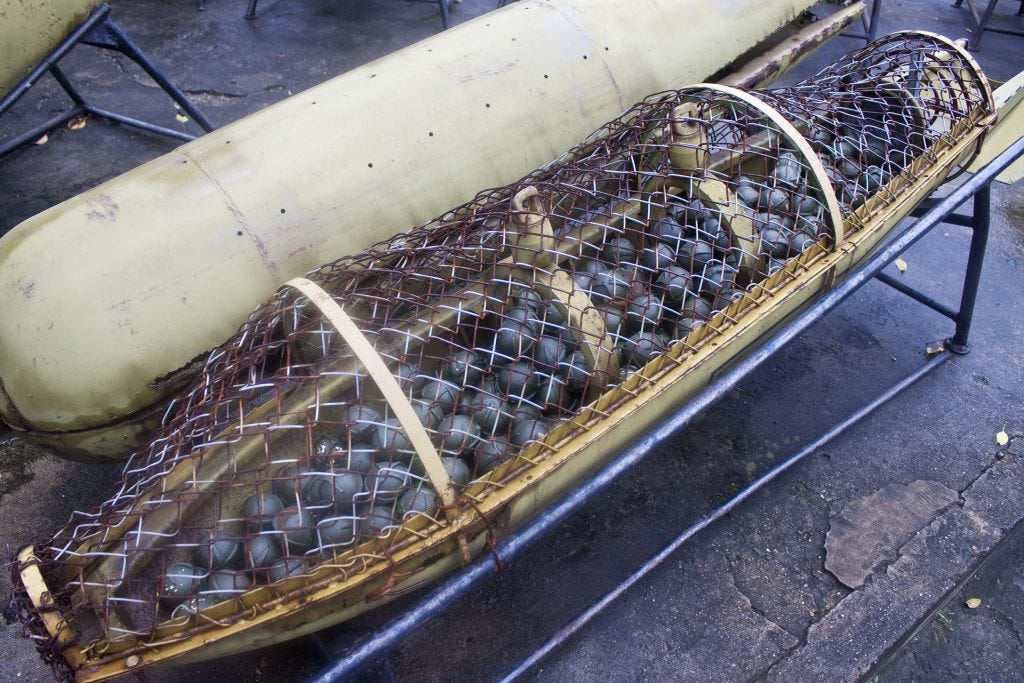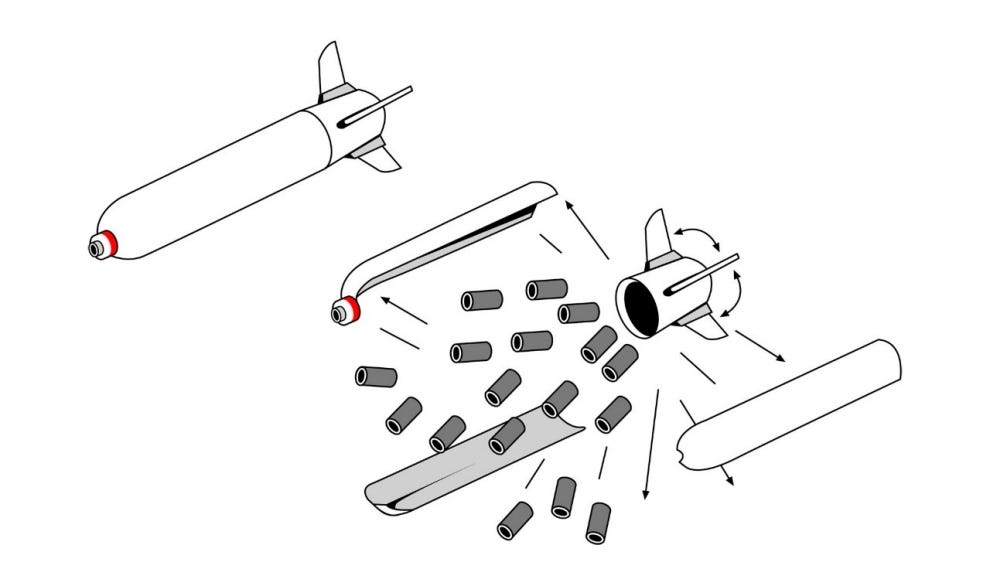Former diplomat urges Trudeau to oppose tragic cluster bombs for Ukraine
95% of victims throughout the world have been civilians
A former diplomat who led Canada’s efforts to ban cluster bombs says that the government must do everything it can to stop the use of these indiscriminate weapons in Ukraine – even if it means opposing U.S. plans to begin shipments of cluster bombs to Ukrainian forces.
Earl Turcotte has written to the Prime Minister, urging, “the further use of cluster munitions would be a tragic mistake.” Turcotte led the Canadian delegation throughout negotiation of the Convention on Cluster Munitions and later served two terms as UN Chief Advisor to the Government of Laos in their ongoing national program to clear Unexploded Ordnance.
“A single cluster bomb typically contains hundreds of explosive sub-munitions designed to blanket a large area,” he wrote. “They are among the most indiscriminate weapons ever conceived – indeed, the polar opposite of a precision weapon.”
Experts say that up to 40% of sub-munitions fail to detonate on impact and can pose a lethal threat for decades. “The International Committee of the Red Cross reports that more than 95% of cluster munition victims throughout the world have been civilians. Most are small farmers in developing countries forced by poverty to cultivate contaminated land, and children who are often drawn to the toy-like appearance of many types of sub-munitions,” said Turcotte.
Cesar Jaramillo of Project Ploughshares told The Intercept, “It by definition will serve to prolong the fighting and to create the conditions for further humanitarian suffering. Not to mention that in the background there is the specter of nuclear escalation, another category of indiscriminate weapons.”
On Friday the Pentagon announced that President Biden had approved the transfer of U.S. cluster bombs to Ukraine, escalating the type of weapons that NATO members are providing to Ukraine. “President Biden ultimately decided, in consultation with allies and partners and in consultation with members of Congress, to move forward on this strategy,” the undersecretary of defense for policy, Colin H Kahl, said at a press briefing in Washington.
Turcotte supports assistance to Ukraine from Canada and NATO, but draws the line at cluster bombs. He urged Prime Minister Trudeau that such weapons will be counter-productive. “The point must be made clearly and forcefully that any immediate military benefit cluster munitions might afford would be nullified and far exceeded by their humanitarian impact on the Ukrainian citizenry over the longer term.”
Below is Earl Turcotte’s open letter to Prime Minister Trudeau, and other Cabinet Ministers:
Mr. Justin Trudeau, Prime Minister of Canada
Dear Prime Minister,
It has been widely reported that the United States is considering providing Ukraine with cluster munitions to help counter Russia’s horrific assault on its territory and people.
While I, like most Canadians, believe Ukraine should be provided robust military assistance to defend itself until a negotiated settlement with Russia can be reached, the further use of cluster munitions would be a tragic mistake. There have been credible reports, including by the United Nations and Human Rights Watch (HRW) that Russia has used at least six types of cluster munitions since its invasion, killing or maiming hundreds if not thousands of civilians and damaging homes, hospitals and schools. HRW also reports that Ukraine itself has already used cluster munitions, though to a far lesser extent.
A single cluster bomb typically contains hundreds of explosive sub-munitions designed to blanket a large area. They are among the most indiscriminate weapons ever conceived – indeed, the polar opposite of a precision weapon. Moreover, up to 40% of sub-munitions fail to detonate on impact and can pose a lethal threat for decades.
Clearance is dangerous and painstakingly slow. Case in point - half a century after American forces saturated Laos with cluster bombs, mainly to disrupt supply routes to North Vietnam, and despite heroic efforts by the Government and people of Laos with international support, approximately one third of the country remains contaminated and innocent people are killed or maimed on a regular basis.
The International Committee of the Red Cross reports that more than 95% of cluster munition victims throughout the world have been civilians. Most are small farmers in developing countries forced by poverty to cultivate contaminated land, and children who are often drawn to the toy-like appearance of many types of sub-munitions.
It was with good reason that in 2007-08, 108 nations, including Canada, negotiated the Convention on Cluster Munitions that bans the use of cluster munitions under any circumstances, for all time.
In addition to the categorical prohibitions contained in the Convention, Article 21 imposes a legal obligation upon States Party to universalize the treaty and its norms. It is incumbent upon Canada and all other States Party, therefore, to do everything in our collective power to prevent the use of cluster munitions by Russia, Ukraine, or any other country.
The point must be made clearly and forcefully that any immediate military benefit cluster munitions might afford would be nullified and far exceeded by their humanitarian impact on the Ukrainian citizenry over the longer term.
With thanks for your kind consideration,
Earl Turcotte
Dunrobin, Ontario
(Earl Turcotte led the Canadian delegation throughout negotiation of the Convention on Cluster Munitions and later served two terms as UN Chief Advisor to the Government of Laos in their ongoing national program to clear Unexploded Ordnance.)



